farming
Latest
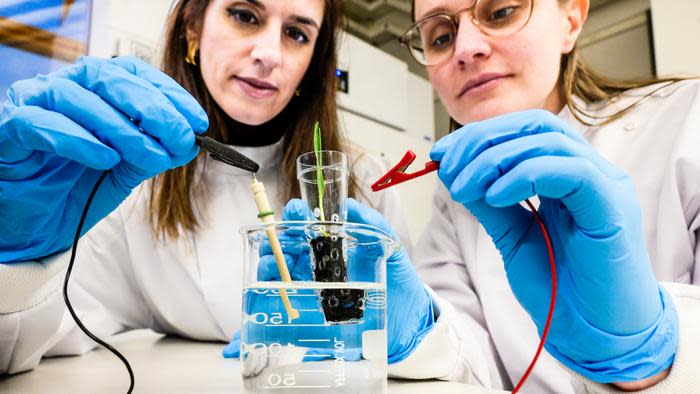
Swedish Researchers develop ‘electronic soil’ that speeds up plant growth
Researchers from Linköping University in Sweden developed a ‘bioelectronic soil’ that can speed up the growth of plants in controlled agricultural farming environments.
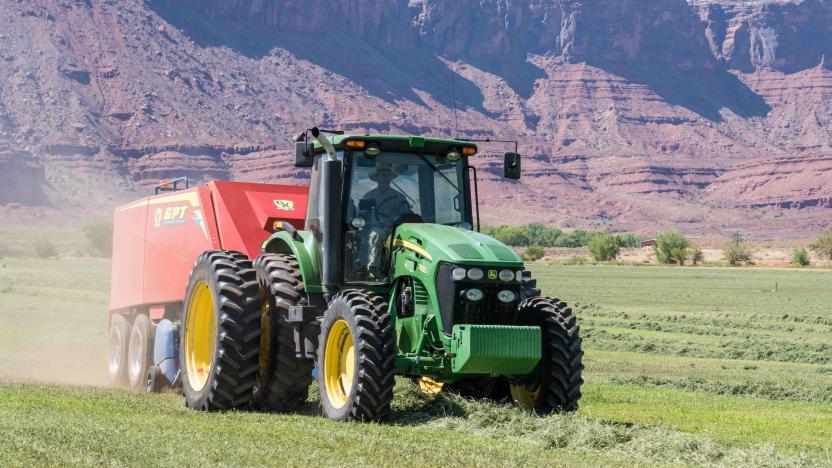
John Deere will let US farmers repair their own equipment
John Deere has agreed to a right to repair promise, albeit under plenty of political pressure.

US Department of Agriculture approves first-ever vaccine for honeybees
Biotech firm Dalan Animal Health recently developed a vaccine to protect honeybees from American Foulbrood disease, a bacteria that can kill entire hives.
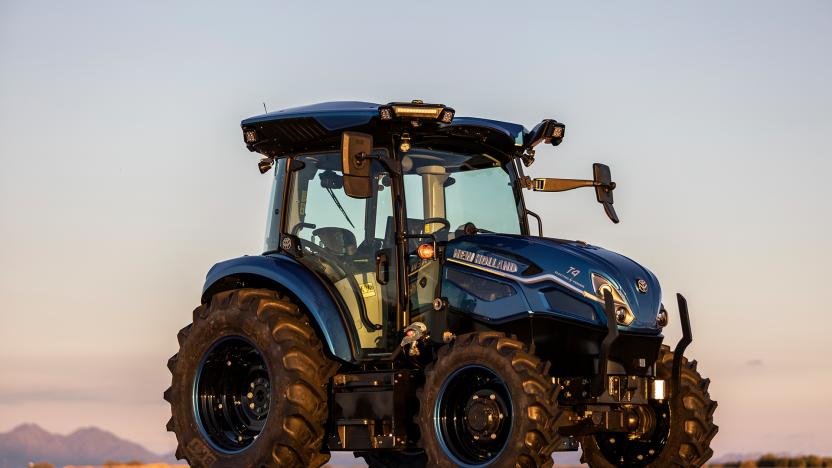
Self-driving electric tractor promises eco-friendly, hands-off farming
Farmers may soon have the option of a self-driving electric tractor that can even power their tools.

IKEA will help turn a Swedish city into a sustainable community
IKEA is moving beyond the confines of the eco-friendly home to work on sustainable urban living. The flat-pack giant is partnering with the municipality of Helsingborg in its native Sweden on a green community project, known as H22, that takes in agriculture, retail and housing. In the Drottninghög suburb, IKEA will help establish an urban farming marketplace with an eye to upskilling residents and creating new jobs and businesses.
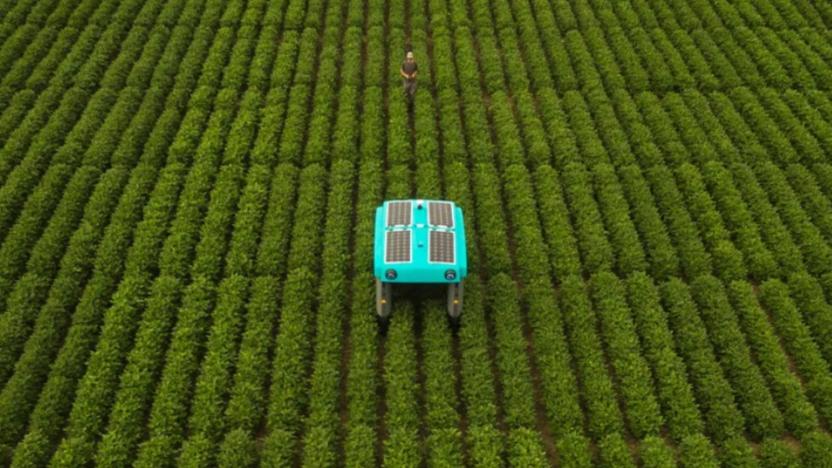
Alphabet's Mineral moonshot wants to help farmers with robotic plant buggies
In 2018, Alphabet's X lab said it was in the process of exploring how it could use artificial intelligence to improve farming. The Mineral team has spent the last several years "developing and testing a range of software and hardware prototypes based on breakthroughs in artificial intelligence, simulation, sensors, robotics and more." Powered by solar panels, the machine makes its way across a farmer's field, examining every plant it passes along the way with an array of cameras and sensors.
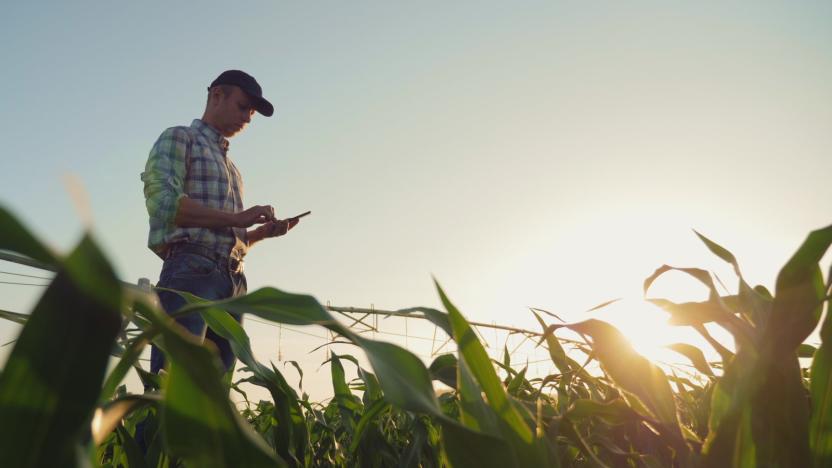
FCC rolls out a $9 billion fund for rural 5G connectivity
The FCC is creating a $9 billion 5G Fund to support rural high-speed connectivity. The funding is intended to help carriers deploy 5G in hard-to-serve areas, those that are sparsely populated and/or have rugged terrain. At least $1 billion will be reserved for 5G to support precision agriculture.
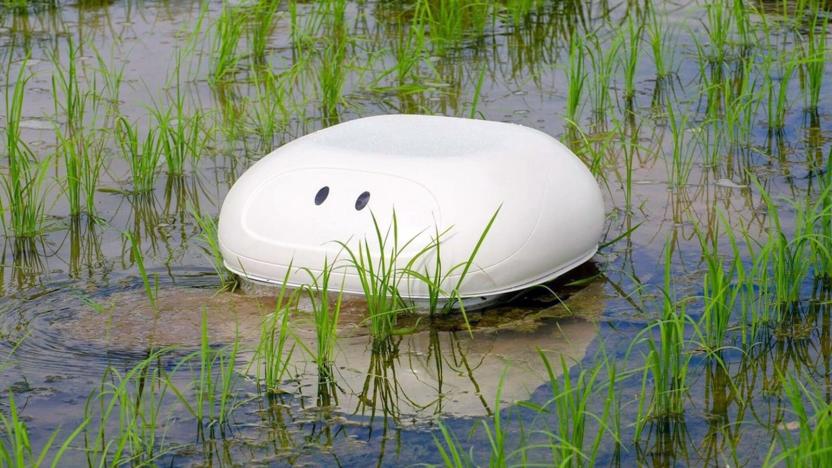
Robot 'duck' keeps weeds out of rice paddies
For rice farmers, ducks have been a viable way to keep their crops healthy -- they destroy weeds, eat bugs and fertilize crops without using harmful chemicals. And now, a Nissan technician might have an alternative when fowl isn't an option. He's testing a robot 'duck' that roams rice paddies, muddying the water to prevent weeds from getting enough sunlight to grow -- it's really a Roomba (and a cute one at that) for watery fields. Although it's a personal project, it's fully realized with GPS, a WiFi connection and solar power to minimize its environmental impact.

FarmWise and Roush are making autonomous vegetable weeders
Silicon Valley startup FarmWise Labs announced today that it is teaming up with Michigan-based manufacturing and automotive company Roush to create autonomous vegetable weeders. The companies will work together over the course of the year to create prototypes for self-driving robots that will be able to navigate across crops. If all goes well, they will start to scale up with additional units in 2020.
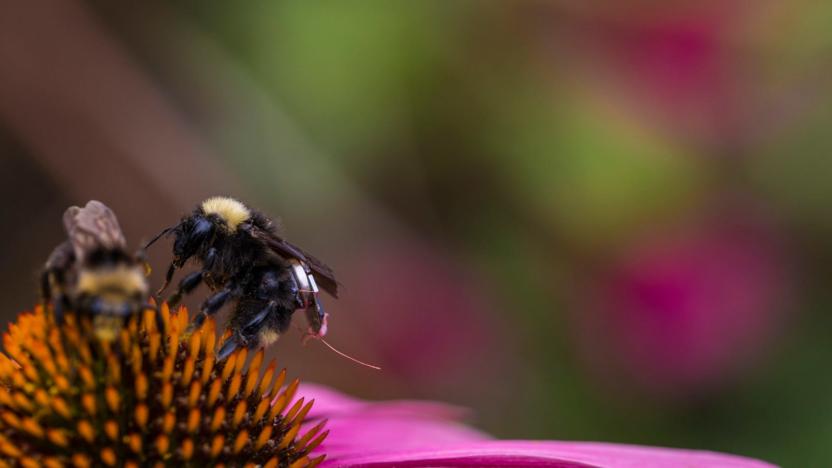
Bees with tiny sensor backpacks could help farmers track crops
Farmers can use drones to monitor their fields, but they have their limits when they can rarely fly for more than 20 to 30 minutes at a time. University of Washington researchers might have a smarter way: recruit some insect friends. They've developed sensor backpacks that are light enough (about 0.0035 ounces) and efficient enough to ride on a bumblebee, but capable enough to collect data for seven hours at a time over relatively long distances. You wouldn't have to replace packs very often, either, as they could just fly into their hives to wirelessly recharge and transmit data.
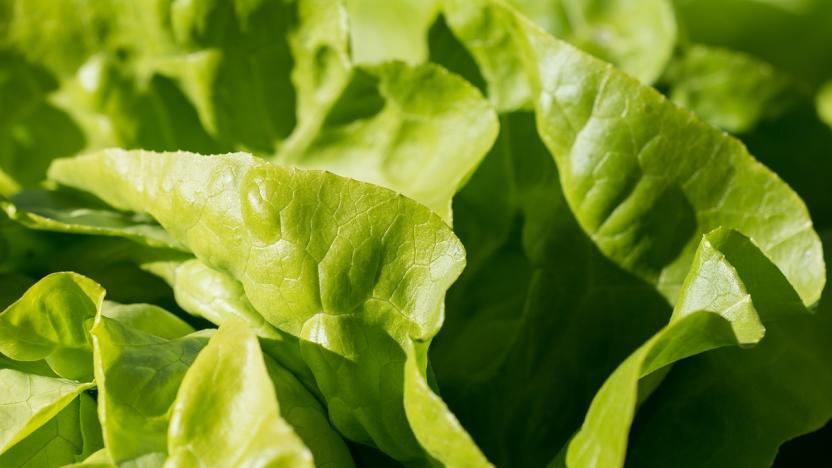
Robots are learning to carefully peel lettuce leaves
Technology is designed to improve and streamline every facet of life, and that inevitably includes areas most people would never even think about. Such a lettuce peeling. A random issue for many, perhaps, but for the agriculture industry, a new development in this field is a big deal. Researchers from Cambridge University have developed the first robotic lettuce leaf peeling system, which not only demonstrates advances in automation, but addresses increasing food and labor demands.
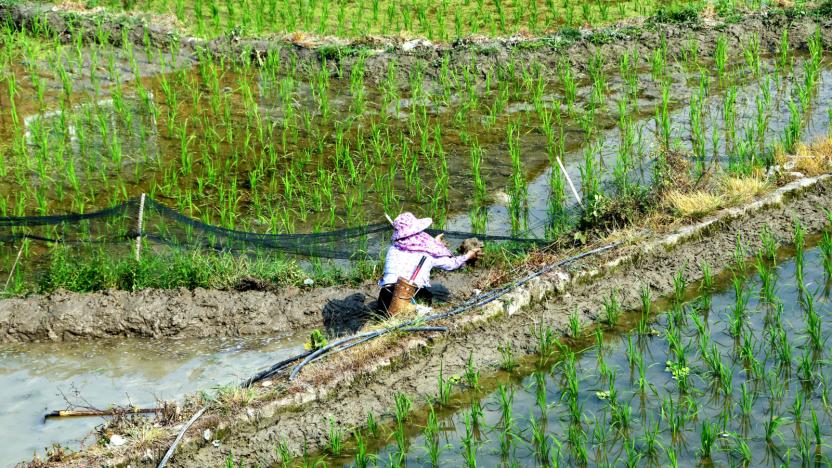
Gene-edited rice plants could boost the world's food supply
Rice may be one of the most plentiful crops on Earth, but there are only so many grains you can naturally obtain from a given plant. Scientists may have a straightforward answer to that problem: edit the plants to make them produce more. They've used CRISPR/Cas9 gene editing to create a rice plant variety that produces 25 to 31 percent more grain per plant in real world tests, or far more than you'd get through natural breeding. The technique "silenced" genes that improve tolerances for threats like drought and salt, but stifle growth. That sounds bad on the surface, but plants frequently have genetic redundancies -- this approach exploited this duplication just enough to provide all of the benefits and none of the drawbacks.

Alphabet's X lab explores using AI to improve food production
Add Alphabet to the growing number of companies hoping that AI will solve food production problems. The Google parent brand's X lab has revealed that it's exploring ways machine learning could improve farming. While X hasn't focused on any specific solutions, lab leader Astro Teller told MIT Technology Review that AI could be combined with drones and other robotics. It could help determine when to harvest crops, or adapt farms in areas where climate change makes forecasting difficult.

Arable's Mark crop sensors give farmers a data-driven edge
I've never actually set foot on a farm, but I'm inexplicably still drawn to agriculture startups -- after all, farming is one of the world's oldest professions, and nothing is quite as helpful as pure hard data. Fortunately, that's exactly what Arable specializes in: It built a crop sensor that's absolutely packed with instruments to give farmers greater insight into how their fields are doing. That's great for business, sure, but it also helps ensure that quality produce eventually ends up on our plates.
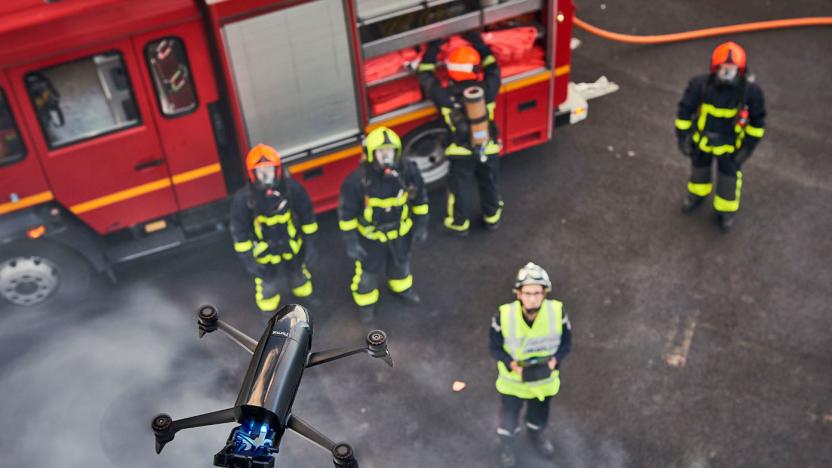
Parrot's latest drones are for farmers and firefighters
It's been a tough year for Parrot. The drone maker cut 290 jobs after sub-par sales, and it wasn't shy in admitting that its lineup was both unfocused and (for personal drones) unprofitable. However, it has an idea as to how to recover: by targeting the professional crowd. Its new Bebop-Pro Thermal and Bluegrass drones include equipment tailored to specific needs. The Bebop, as its name implies, includes a thermal imaging camera and matching software alongside the usual video cam. It's meant to help firefighters and rescue crews pinpoint sources of heat, whether it's a blaze or a person trapped under rubble. There's also a long-range remote control in the box to keep pilots well out of harm's way.
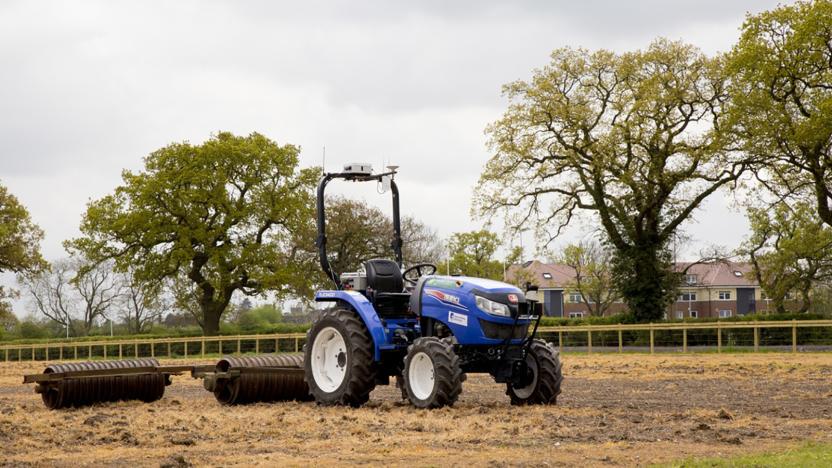
Shropshire farm completes harvest with nothing but robots
Researchers in Shropshire, England have managed to sow and harvest a field of barley using nothing but robots. Many aspects of farming have now been automated, but rarely is the entire process — planting, tending, monitoring and harvesting — completed without someone stepping foot inside the field. The 'Hands-Free Hectare' project was set up last October by a team from Harper Adams University. With £200,000 in government funding, they modified a tractor and combine harvester with cameras, lasers and GPS systems. Drones and a robot "scout," which could scoop up and carry soil samples, helped the group monitor the field from afar.

John Deere bought an AI company to optimize crop spraying
Want to know how pervasive AI is becoming in seemingly all facets of daily life? Just ask Deere & Company. The John Deere brand owner just acquired Blue River Technology, which uses machine learning and computer vision to target herbicide spraying at just the weed-infested portions of a farm field. The technology can minimize both waste and the amount of input needed while spraying, saving farmers headaches and money in the process.
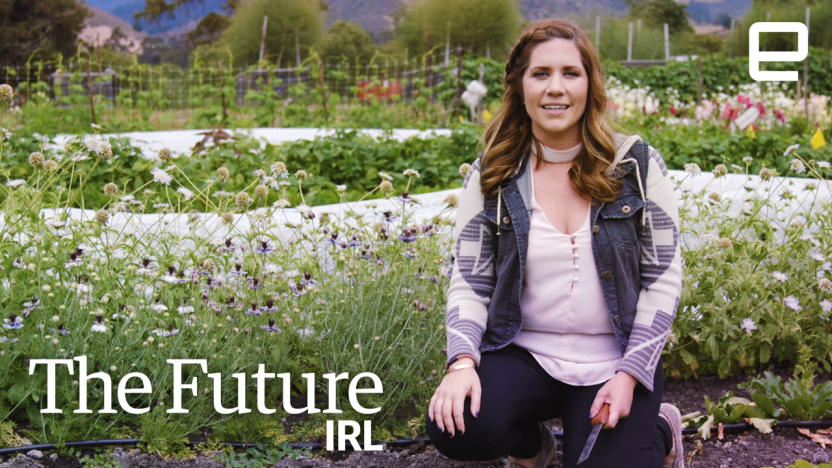
The Future IRL: Robot farmers do the dirty work
The US is facing an agricultural worker shortage, along with aging farm owners, at the same time it juggles demand in food from a global population boom. If we're being blunt, those elements added together would mean farmers and production are straight screwed. Luckily, some engineers and researchers are creating robots that are already beginning to ease the load.
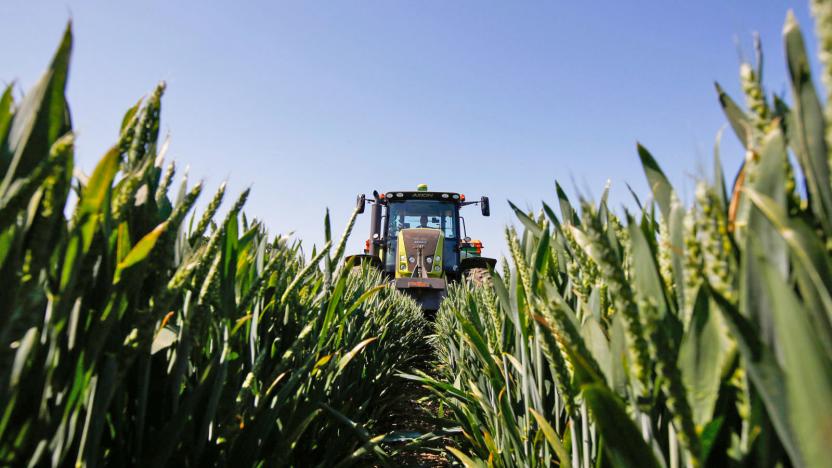
Monsanto bets on AI to protect crops against disease
Monsanto has drawn plenty of criticism for its technology-driven (and heavily litigious) approach to agriculture, but its latest effort might just hint at the future of farming. It's partnering with Atomwise on the use of AI to quickly discover molecules that can protect crops against disease and pests. Rather than ruling out molecules one at a time, Atomwise will use its deep learning to predict the likelihood that a given molecule will have the desired effect. It's whittling down the candidate list to those molecules that are genuinely promising.

Recommended Reading: Radiohead's 'OK Computer' predicted the future
The Radiohead Prophesies: How 'OK Computer' Predicted the Future Stuart Berman, Pitchfork Pitchfork is celebrating the 20th anniversary of Radiohead's OK Computer this week, including a pretty interesting look at how Thom Yorke imagined the future in 1997. Released at a time when the internet was still a new thing, the album's content ties in directly to 2017. As Berman notes, "OK Computer is really more like the first draft for a never-filmed pilot episode of Black Mirror."










